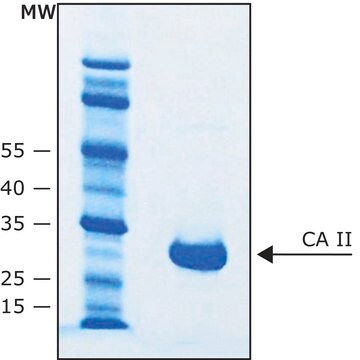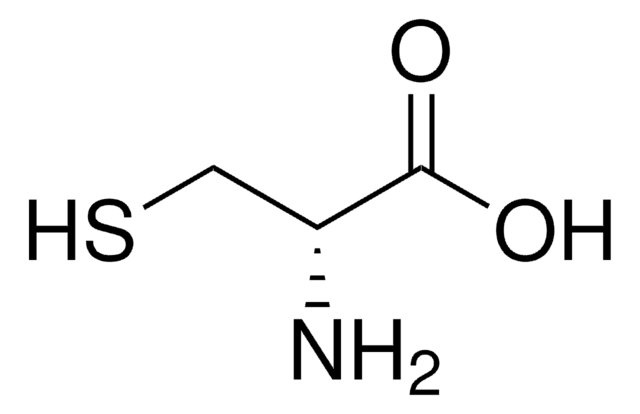A0152000
Acetylcysteine impurity C
European Pharmacopoeia (EP) Reference Standard
Synonym(s):
N,N′-Diacetyl-L-cystine, NSC 203780
About This Item
Recommended Products
grade
pharmaceutical primary standard
API family
acetylcysteine
manufacturer/tradename
EDQM
application(s)
pharmaceutical (small molecule)
format
neat
storage temp.
2-8°C
InChI
1S/C10H16N2O6S2/c1-5(13)11-7(9(15)16)3-19-20-4-8(10(17)18)12-6(2)14/h7-8H,3-4H2,1-2H3,(H,11,13)(H,12,14)(H,15,16)(H,17,18)
InChI key
YTPQSLLEROSACP-UHFFFAOYSA-N
General description
For further information and support please go to the website of the issuing Pharmacopoeia.
Application
Established for the preparation of reference solution (c) in testing for related substances in acetylcysteine using liquid chromatography (General text 2.2.29), according to the monograph 0967 of European Pharmacopeia.
Packaging
Other Notes
related product
Storage Class Code
11 - Combustible Solids
WGK
WGK 3
Flash Point(F)
Not applicable
Flash Point(C)
Not applicable
Choose from one of the most recent versions:
Certificates of Analysis (COA)
Sorry, we don't have COAs for this product available online at this time.
If you need assistance, please contact Customer Support.
Already Own This Product?
Find documentation for the products that you have recently purchased in the Document Library.
Customers Also Viewed
Our team of scientists has experience in all areas of research including Life Science, Material Science, Chemical Synthesis, Chromatography, Analytical and many others.
Contact Technical Service








